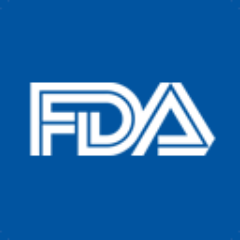September 9th is the deadline premium cigar companies had been given to file for Substantial Equivalence to keep non-predicate (non-grandfathered) products on the market. This week the U.S. Food and Drug Administration (FDA) sent a letter to Judge Paul Grimm of the U.S. District Court of Maryland outlining a plan that includes an option for companies to request a deferment for filing for Substantial Equivalence (SE) and again reopening the question of how premium cigars should be regulated.
Under the FDA’s Deeming Rule, cigars introduced to the market before February 15, 2007, do not require FDA approval to remain on the market, but products introduced to the market between February 15, 2007, and August 8, 2016, require the costly Substantial Equivalence (SE) process. When the Deeming Rule was announced in May 2016, the plan was that product approval, which includes SE, would be implemented beginning August 8, 2018. Shortly after U.S. President Donald Trump named Dr. Scott Gottlieb FDA Commissioner, Gottlieb announced a delay that pushed FDA approval out nearly three years to August 8, 2021.
This triggered a lawsuit filed by the American Academy of Pediatrics in the U.S. District Court of Maryland against the FDA claiming the FDA did not have the authority to delay the implementation. It created an interesting scenario where the Cigar Industry and FDA were on the same page as far as the 2021 deadline. In May 2019 Judge Paul Grimm of the Maryland Court ruled against the FDA, thus restoring the original August 8, 2018 deadline. Since that time had passed, Grimm implemented a new date of May 12, 2020. Because of the COVID-19 pandemic, the deadline was pushed to September 9, 2020.
In terms of the letter, there are three key points:
- The deferment option is one that will be considered on a case by case basis for cigar companies – and it’s unclear how long a deferment will be granted for Substantial Equivalence (SE).
- The FDA has acknowledged it has limited resources, and that premium cigars are a lower priority. In fact, the FDA said in the letter, “Because the FDA’s current information indicates that youth smoke premium cigars comparatively less than most other deemed tobacco products, like e-cigarettes, premium cigars remain the FDA’s lowest priority for premarket review.”
- The FDA will be undertaking a new research effort in regards to premium cigars and will be seeking public comment once again.
The letter was written to Judge Paul Grimm and includes language from the FDA on how It defines a premium cigar.
It’s unclear if the letter requires a ruling from the judge or not. The plaintiffs in the Maryland case have indicated they oppose the relief and request an opportunity to respond by August 17th, 2020. It is important to note that Judge Grimm originally ruled in favor of the plaintiffs when this case was first filed. Finally, oral arguments about the question of Substantial Equivalence were held in the main court case in the U.S. District Court for the District of Columbia, and a ruling is expected on that sometime this month. The Maryland case is the one that set the September 9th date, thus why the letter was sent to this court
Nonetheless, the industry is looking at this as the glass half full. Premium Cigar Association (PCA) Executive Director Scott Pearce noted, “this is an important indication by the FDA that they do not have the capacity or resources to regulate premium cigars for premarket review. However, the industry needs further clarity and is hopeful that the Trump Administration will take definitive action in support of the small businesses across the country and go a step further. We cannot operate businesses in regulatory uncertainty and the FDA’s action further complicates the situation especially without their definitive release of guidance on the topic.”
Cigar Rights of America (CRA) Executive Director Glynn Loope added, “While this letter is a welcomed recognition that premium handmade cigars warrant regulatory relief, it is concerning that the industry will be asked to submit, yet again, analysis to demonstrate what has already been proven – premium handmade cigars are unique and lack the adverse public health impact some seem determined to claim. This letter also recognizes that the agency has higher priorities. It is time for the FDA to provide the premium cigar industry and its family owned businesses permanent relief from this unjustified regulatory scheme, rather than this uncertain potential process.”





